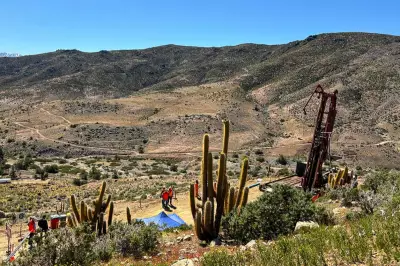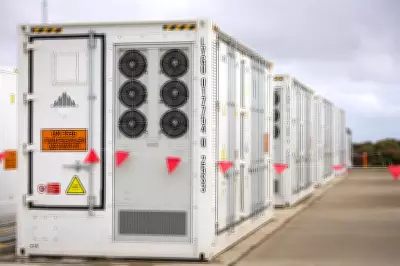
In a stunning three-day corporate drama that shook global mining circles, Australian giant BHP launched and then abruptly abandoned an audacious attempt to scuttle one of the industry's largest-ever copper deals.
The Bold Move That Shook Mining
Last Thursday night, the world's largest mining company made a brazen effort to gatecrash Anglo American's planned $US60 billion combination with Canada's Teck Resources. Yet by Sunday evening, the surprise bid had collapsed entirely, leaving investors and executives questioning BHP's strategic direction.
The dramatic intervention came despite BHP spending the past 18 months insisting it had 'moved on' from its previous failed attempt to acquire London-based Anglo American. The commodities behemoth's sudden reversal and near-instant capitulation has sparked intense debate about its confidence in standalone growth plans for copper - the metal increasingly viewed as critical for global energy transitions.
Now-or-Never Pressure
For BHP and chief executive Mike Henry, the attempt represented a final opportunity to negotiate a friendly deal for copper mines the company has long coveted, according to insiders familiar with the situation. Anglo's South American operations remain among the industry's premier assets and were the key driver behind BHP's failed takeover attempt last year.
'There's a general sense of now-or-never,' said Tiago Rodrigues Lourenco, a fund manager at Aberdeen Group, whose funds hold shares in both mining companies. 'After the business combination, the complexity of acquiring Anglo-Teck will be much greater.'
The timing proved particularly urgent with Anglo and Teck shareholders scheduled to vote on their combination on December 9 - just over two weeks away when BHP made its move.
Premium Offer and Rapid Collapse
A small BHP team led by CEO Henry and chief development officer Catherine Raw assembled a bid comprising mostly shares with a cash component. The offer for all of Anglo came at a premium to the current share price, valuing Anglo's shares comfortably above £30 compared to Thursday's closing price of £27.36.
BHP contacted Anglo throughout last week before sending the formal proposal to the Anglo board late Thursday or early Friday morning Australian time. The bold move triggered immediate reactions across multiple continents.
Anglo alerted Teck to the development on Friday, while the Anglo board gathered online to compare BHP's offer against the benefits of the Teck combination. Chief executive Duncan Wanblad participated from South Africa, where he attended events around the G-20 including a dinner with President Cyril Ramaphosa.
BHP hoped to keep negotiations private, but when Bloomberg broke the story on Sunday morning, events moved rapidly. Anglo quickly informed BHP it wasn't interested, preferring the Teck deal. BHP's response was immediate withdrawal.
By late Sunday night in London, before Australian markets opened, BHP issued a terse statement confirming it had decided against pursuing Anglo. Under UK takeover rules, this restricts BHP from making another offer for six months except in specific circumstances.
Strategic Implications for Copper
The failed bid underscores the intense competition for quality copper assets amid tightening global supplies. Copper prices have risen 23 per cent this year following setbacks at key mines worldwide, boosting Anglo's stock relative to BHP due to its greater exposure to the wiring metal.
Some BHP shareholders expressed relief the company walked away rather than risk overpaying, while others questioned the strategic thinking behind the abrupt move. 'This underscores just how hard it is to do M&A for copper in the current environment,' said Jamie Hannah of Van Eck Associates, a BHP shareholder.
BHP maintains significant copper growth options including new mines in Australia and Argentina, plus expanded output at its massive Escondida operation. However, these projects require substantial investment even for a company of BHP's scale and offer little short-term production offset.
The three-day saga leaves lingering questions about how Australia's mining champion will secure its copper future while demonstrating the fierce global competition for premium assets in the energy transition metal.





